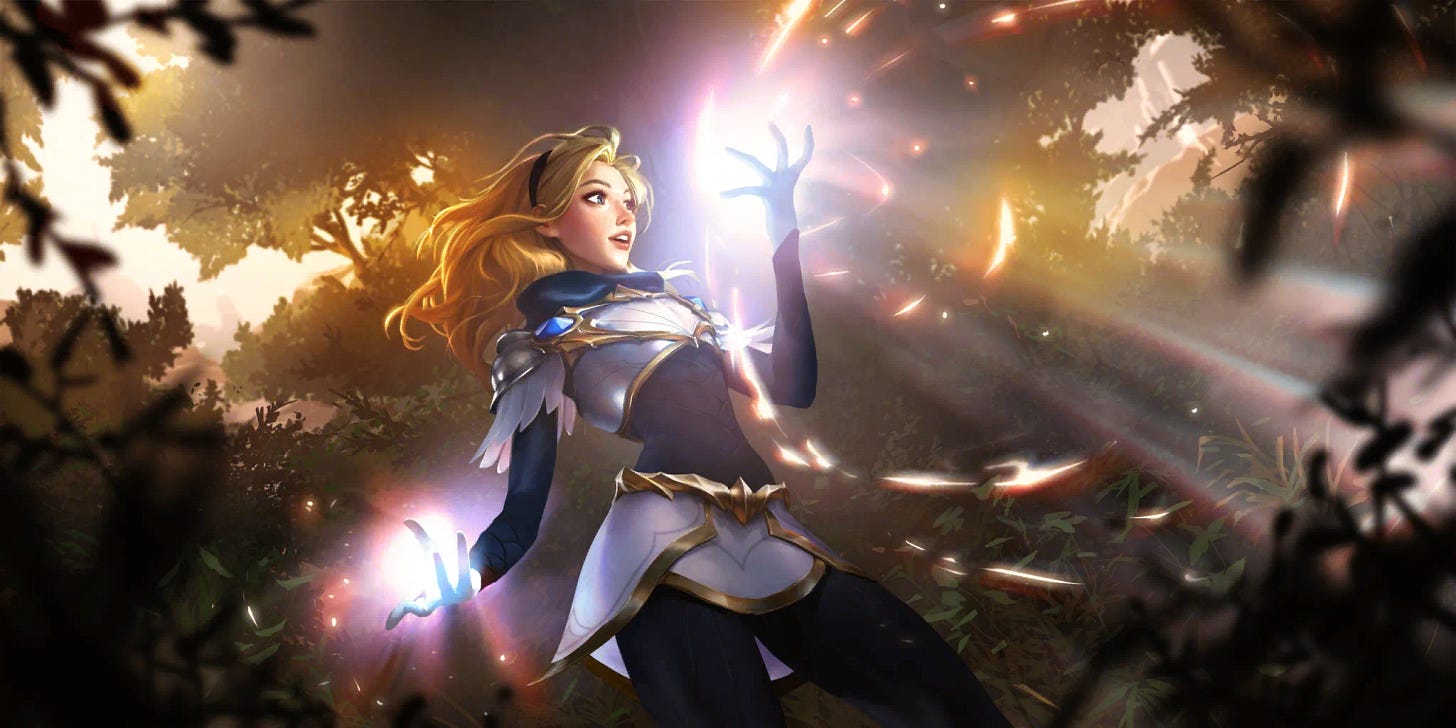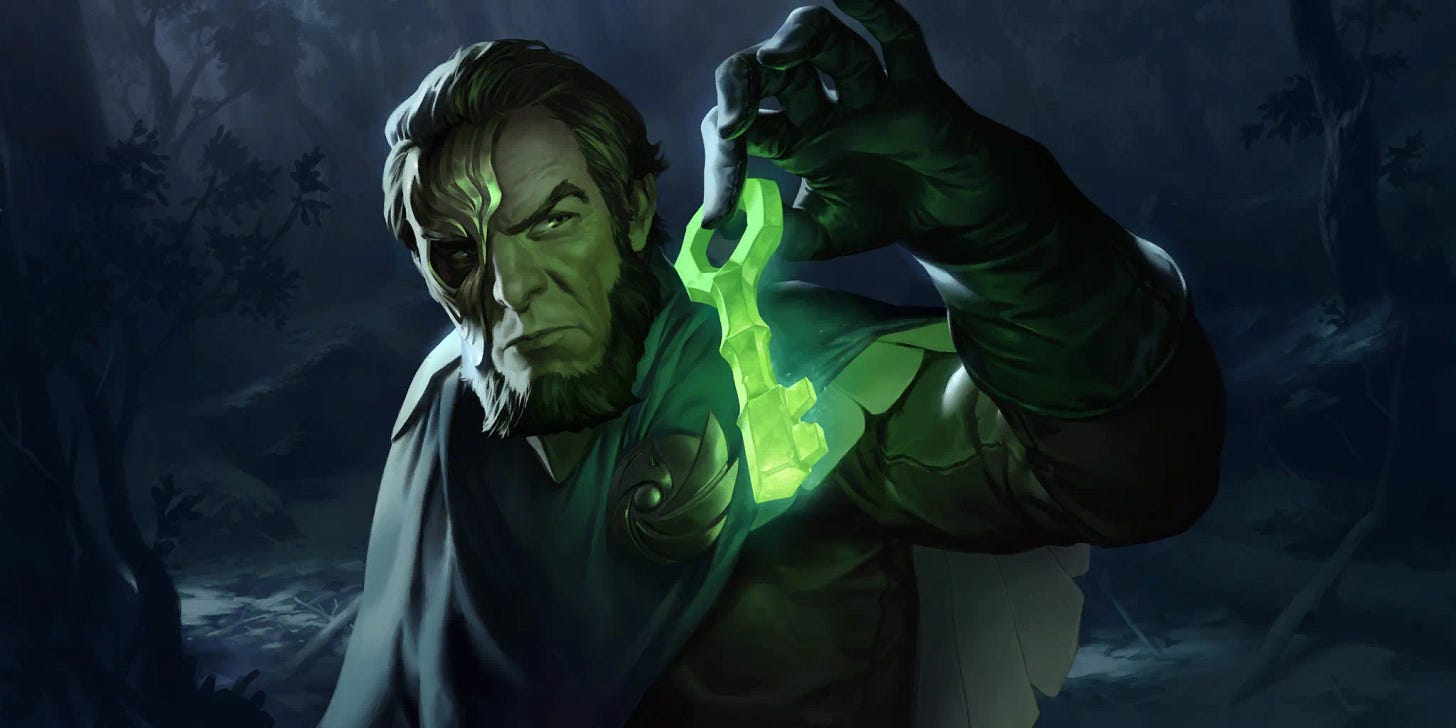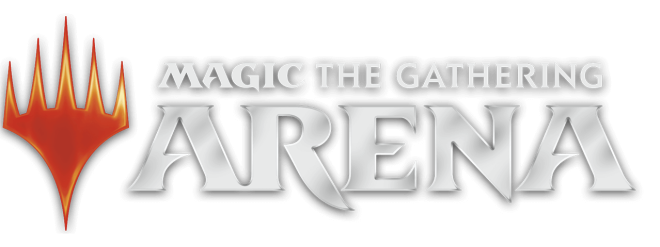Home Away From LoR: MTG Arena
LoR always tried to be more like Magic than Hearthstone – with Riot putting LoR PvP in stasis, MTG Arena may be a good alternative for LoR exiles.
Howdy, and welcome to our "Home Away from LoR" series, where LoR exiles share what CCGs we're playing now – who knows, perhaps you'll like it, too!
In my case, I think I'll pitch my tent in MTG Arena. I've been playing it on and off since Open Beta back in October 2018, and quite a bit during 2023. MTG Arena's main selling points for me are drafting (my favorite format), a lot of interaction (I loooove stack struggles!), and an economy that’s generous enough to be playable for cheap (although nowhere near as generous as LoR).
In today's article, I'll go over what I think are the pros and cons of Magic in general for LoR exiles, with a focus on MTG Arena proper.
Magic: A Tale of Many Games
There are several ways to play Magic: The Gathering. Paper/tabletop is the most common by far, but it can be fairly expensive.
MTG Arena is the digital, F2P version of the game. From the point of view of mechanics, Arena is the same as paper/tabletop Magic; the main differences are:
The card pool: Magic has more than 26,000 cards overall, while Arena has about 10,000 cards available.
The economy: In Magic, you can trade, buy, and sell cards; Arena follows a similar model to LoR (or Hearthstone) in which you can't trade or sell cards, and it's possible (although time-consuming) to acquire a large collection without spending a cent.
No multiplayer formats: All Arena formats are 1-vs-1 (unlike tabletop Magic, in which multiplayer formats, and Commander in particular, is by far the most popular way to play).
The Positives: Why Play Magic Arena
Magic Was There First – And It's Still the Biggest
Magic is the granddaddy of them all – this is the game that created the card game genre more than 30 years ago.
Simply put, MTG's main selling point is that it's still selling. It's the oldest card game in the market, also the biggest, and it's still going strong – in 2023, their Lord of the Rings adaptation became the best-selling set of all time, earning them over 200 million bucks (and counting).
Magic is not the same as MTG Arena, of course, but just a glance at Wizards of the Coast's Magic webpage will make it clear that WotC loudly promotes Arena as one of the main ways to play Magic.
Put bluntly, if you're coming from LoR then worry not about your new home's health: this game ain't dying.
Hearthstone, Re-complexified
If Magic is the granddaddy of all card games, then Hearthstone is the father of the digital CCG genre. Hearthstone, now celebrating its tenth anniversary, got huge by streamlining and simplifying MTG's mechanics quite a bit, and then shrewdly wrapping the game around an F2P model.
Simplifying is not in itself a bad thing – MTG's complexity has some negative trade-offs that other games, including LoR, iterated and improved upon. But one of the things that LoR did (great) was to "re-complexify" HS a bit by re-introducing some of MTG's mechanics. And that would be another of MTG's selling points if you're coming from LoR: In Magic, you'll find some of the mechanics that Hearthstone (and many of its successors) abandoned, but that were a tentpole of how LoR worked.
Among the many things that Hearthstone simplified from Magic:
You can't act on your foe's turn
There are no blockers
There's no stack
If you enjoyed these mechanics in LoR, then you'll find that in Magic:
You can act on your foe's turn; not as much as in LoR (arguably LoR is the most reactive CCG out there!), but depending on your deck you can play a lot during your opponent's turn.
Blocking in MTG is even more complex than in LoR (there are no lanes, so a single attacker can have multiple blockers), and
The stack is a lot more interactive than in LoR.
Magic has a ton of interaction – removal is a lot better than in LoR, and counterspells (think Deny) are fairly common.
Combat tricks, on the one hand, are a lot less prevalent in MTG's constructed formats (removal is so efficient in MTG that it renders most combat tricks useless). But, on the other hand, combat tricks are important in MTG's limited formats.
The Economy (Compared to Paper/Tabletop Magic)
Arena's economy is a lot worse than LoR's. By, like, a lot.
But Arena is, for most formats and activities, a lot cheaper than paper Magic. Again by, like, a lot.
This is where the grand-daddy learned took a page from the father's book: MTG Arena follows a F2P model which, broadly speaking, is pretty similar to Hearthstone: You cannot trade or sell your cards (like you would in a paper/tabletop game), but you get daily quests, daily wins and and seasonal reward track that will reward resources just for playing.
And, interestingly, LoR's crafting system seems to have been inspired by Arena's, rather than Hearthstone: just like in LoR, in Arena you can't "dust" your cards (i.e. destroy your card to recover some of the resources you use to craft them, something you can do in HS), and Arena uses a wildcard system that is fairly similar to LoR's.
A Deckbuilder's Paradise
If you like brewing your own decks and/or tweaking existing Top Dogs to adjust them to your preferences, then MTG's deckbuilding is a lot more freeform than LoR's.
In LoR you can only put cards from two regions (meaning any deck is restricted to about 20% of the existing card pool). In Magic you can cram any card you want into your deck, the only restriction being the number of copies.
(That's not to say that's a good idea, as we'll see when talking about MTG's mana system – but, as far as deck-building rules go, you can.)
And Magic's card pool is HUGE. As I type this there are more than 3,000 cards that are legal in Standard, and in Timeless (the mode with the most cards in Arena) the number goes up to 10,000.
A Ton of Constructed Formats
Calling Magic "a game” is a huge disservice – it's really a lot of different games that happen to share the core rules and some of the game pieces.
MTG Arena only has some of Magic's formats (Modern and Commander are noticeably absent), but makes up for it by:
Having its own "native" formats (only available in Arena), like Timeless or Historic.
Having lots of different ways to play most formats: For example, you can play Standard in six different ways (Casual, Ranked, and Events, each having the option to play either Bo1 or Bo3 with sideboards).
The difference between the Bo1 and Bo3 metas is often quite noticeable, and since Bo1 is something you can only find in Arena, it is not a stretch to say that the game has its own metas even for true-to-tabletop formats like Standard.
Limited Formats!
Once upon a time, LoR used to have a draft format (Expeditions) but that's gone. As a matter of fact, Expeditions were the first LoR thing that Riot killed.
Drafting in Magic is alive and well, and given that Arena allows the gathering of data via player logs, MTG Arena has had a huge impact on drafting as a whole: Third-party websites like 17lands nowadays publish extremely detailed metagame data about how cards perform in Limited environments, and that's only possible thanks to MTG Arena.
The Negatives: What Magic Does Worse than LoR
Non-Games
The mana system is where most CCGs differ from their granddaddy. Some (like Yu-Gi-Oh) simply have no mana. And a good chunk of digital CCGs, LoR included, have adopted Hearthstone's system where you automatically get +1 mana per turn and you can use the same mana for any card in the game.
MTG's mana system is very different: There's a specific type of mana-producing card (lands), and there are five different colors of mana (and six mana types: yes, it's complicated), meaning that when building your deck you must always consider how many mana sources you need to include – as a very rough rule of thumb, and depending the format, 30-40% of your deck will be lands rather than creatures or spells.
On the one hand, this land system is what allows Magic's deck-building freedom: The game lets you put any card you want in your deck, with the trade-off that you'll have to build your mana base accordingly.
On the other hand, lands produce Magic's worst feature: Non-games.
There will be times (very roughly between 10% or 20% of games) in which one player will draw either too few lands ("mana screwed") or too many lands ("mana flooded") and they will lose without any player having any agency in the result.
If you're coming from LoR (or any other CCG), this is just something you'll have to accept and live with if you want to call Magic home. Even the deciding games of the top tournament have been decided by one player being mana-screwed!
The MTG Arena Client
I haven't had too many problems myself, thankfully (I play on PC), but I've heard quite a lot of folks having bad experiences: freezes, poor performance, sometimes the game crashing or refusing to start after a big patch, etc.
MTG cards have tons of text, which makes reading them a pain on small screens.
The Economy
MTGA's F2P model and card-crafting system are fairly similar to LoR's (including the use of wildcards of different rarities), but the game is a lot more stingy. In particular, forget about owning all the cards unless you spend monstrous amounts of money, time, or both.
Which in turn kills the "deckbuilders' paradise" vibe a bit – you gotta have them cards to brew!
This is particularly true for lands (which, as noted above, are the backbone of MTG's mana system). A good mana base requires rare lands, and those are expensive to buy or craft. And, worse, lands are very often boring: you're spending a lot of money (or in-game currency) for stuff that is kinda bland to play.
You can play MTGA for free, or for very cheap, but to do so you'll need to focus on a specific format for quite some time (like only playing Standard, or only playing Explorer, etc.) and build your collection for that specific format.
Wrapping Up
In a Magic–Hearthstone spectrum, LoR falls a lot closer to Magic than the majority of modern CCGs. Hearthstone got rid of mechanics like blocking, playing during your opponent's turn, and stacking spells on top of each other, but if you enjoyed those in LoR you'll find them again in Magic.
On the other hand, MTG Arena follows the F2P model that HS has set in stone. It's nowhere as generous as LoR (because nobody is), but if you're frugal and dedicated you can play Arena for cheap, and definitely for a lot cheaper than the paper/tabletop version.
I hope you've found this MTG Arena review useful, and helped you decide if you want to try it as your new home away from LoR.
And good luck out there! =)
RIWAN is free, and ad-free (except I guess this block right here =).
We’re passion-fueled — but an extra cup of coffee always helps!
If you like what we’re doing and would like to support us, here’s our Tip Jar:
… THANKS!! 😄






